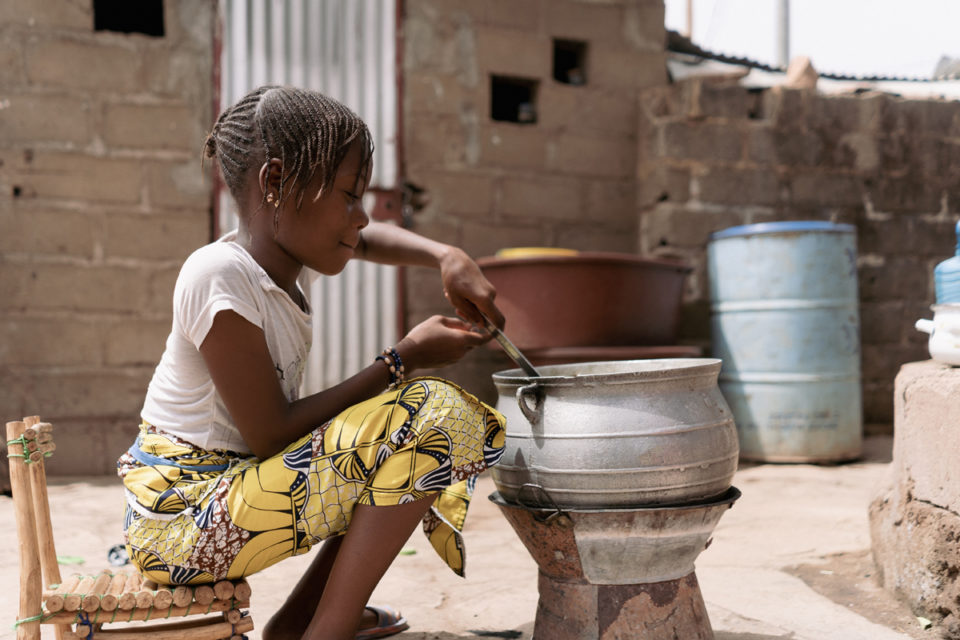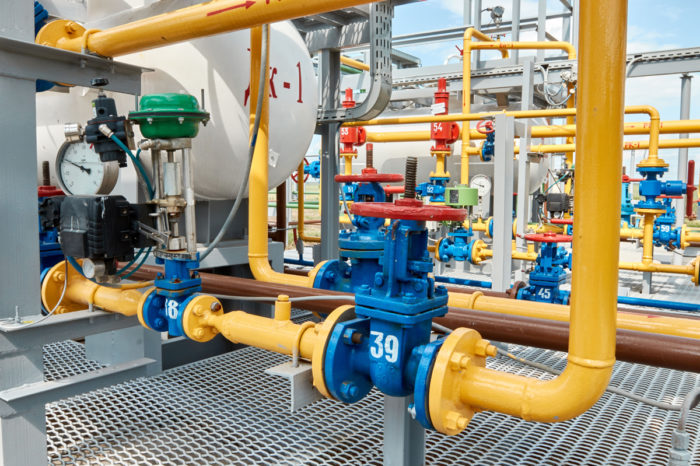Could Africa Be the Next Frontier for American Coal?

By Jonathan Brewer, CleanSoil Technologies, Inc.
The simple answer to the headline’s question is yes, but you may be surprised at the reason why. It’s the environment. While developing an industrial revolution in Africa will prove a daunting task, the rewards are well worth it from an environmental, economic and humanitarian perspective. The United Nations, the World Bank and enviro-colonialists have a significant head start in stifling Africa’s success, but with the advent of U.S. coal and “Green Gen” and its modern technology, a reliable power grid can be established and economic development can be fostered once more.
With modern coal-fired plants providing reliable and reasonably inexpensive access to energy, Africa can abandon subsistence farming, the burning of biomass (wood) for fuel and adopt modern water treatment and sewage practices, thereby reducing the current negative loads on the African environment and coming into the 21st century.
While Africa is the second largest continent by landmass after Asia, it accounts for just 3 percent of the world’s production of CO2, with the majority of that being produced by South Africa and Libya. What most people don’t realize is that Africa will equal or surpass the population of China or India in the next 10 years, yet still be limited in access to clean, reliable electricity.
In my last article in American Coal, I alluded to the fact that the final chapters of advanced coal technologies have yet to be written, i.e., 1) CO2 sequestration either through organic harvest or long-term storage; 2) straight conversion of CO2 into methanol; and 3) coal conversion to graphene or carbon fiber or other industrial uses like efficiently powering the freighters delivering the coal to Africa.
The physics and weather impact research of renewables haven’t been done, and we really don’t know the long-term or unintended consequences of what wind and solar may bring. But with the most sophisticated power grids in the world, California and Texas are experiencing brownouts and freeze-outs because of renewables investment. What chance of reliability does Africa have with virtually no power grid at all?
The World Bank, the UN, enviro-colonialists and the International Energy Agency (IEA) are not coal’s friends, and they are not Africa’s friends, either. They have already pulled all funding for any future fossil fuel-fired power plants in Africa. Let’s recall the ancient Sanskrit proverb: “The enemy of my enemy is my friend.” With a bit of collaborative effort by American coal producers, economically focused African leaders and investment partners like Dubai and China, who have already begun stepping up to the plate, success can be at hand.
The United States has been blessed with the largest coal stock in the world, with proven reserves of about 452 billion short tons. We really have no competitors as China is a net importer of coal and the entire continent of Africa has less coal than the state of West Virginia. Although China cannot provide coal, it will gladly provide “Green Gen” coal gasification power plants like that at Tianjin and elsewhere. Africa provides the market, China provides the technology, Dubai contributes investment capital and America our coal. This is a partnership begging for assembly.
The IEA report, “Africa Energy Outlook 2022,” provides a detailed outlook of the sustainable Africa scenario (SAS), which in many ways could be considered laughable if the consequences to Africa weren’t so dire. The reality is that 500,000 Africans die prematurely because of indoor air pollution caused by cooking with dirty fuels like wood, charcoal or kerosene. Three hundred thousand more Africans die prematurely because of outdoor air pollution caused by the same sources. Yet the IEA offers up the SAS solution of having 41 percent of the African population using the improved cookstove (ICS) by 2030. The ICS still uses wood and charcoal as its energy source. The IEA even acknowledges that it doesn’t expect the SAS to really happen. “Clean cooking access in sub-Saharan Africa needs to improve around 15 times faster over 2022-2030 than historic levels – an improvement rate unprecedented anywhere in the world,” the report says.
While the eco- and enviro-colonialists stick to the conversational mantras that they’ve taken to heart from Brown, Sarah Lawrence or the International Conservation Caucus Foundation (ICCF), the African people suffer. Conserve what? The US$785 annual wage in the Democratic Republic of Congo? The weekly stay in Virunga National Park for the “Gorilla Bonanza Package” at US$7,500 per week? I think the African people are sick and tired of being subjugated to the will of “… advancing US leadership in international conservation,” as the ICCF states. The environmental theme parks for the privileged few will need to step aside for the advances of humanitarian development.
Market Case Study – Democratic Republic of Congo (DRC)
Matadi, DRC (pop. est. 400,000 in 2019) is the primary deep-water port for the country (pop. 89.56 million in 2020). There are no coal import/export facilities existing or planned on Africa’s west coast. Dubai Ports World is upgrading its Banana Port area for increased capacity. Heavy rail/rail yards adjoin the port as a direct link to Kinshasa (pop. 17.07 million in 2021), the DRC’s capital. Currently, only 9 percent of the DRC’s population has access to electricity and 13 percent creates 85 percent of the DRC’s gross domestic product.
With the economic, environmental and humanitarian benefits that U.S. coal brings to Africa, much can be achieved:
- Access to inexpensive and reliable electricity brings industry. Industry brings employment, and employment brings dollars.
- The rise in quality-of-life causes migration to the cities for education, jobs and lifestyle.
- Reducing poverty puts less strain on the environment and creates an overall positive benefit.
- A rising economy brings greater health, longer life expectancy and lower infant mortality.
- The population that moves to the city will leave land behind to be repopulated with wildlife.
- Modern farming equipment, methods and fertilizers create greater efficiency and higher yields per acre. This creates a situation where more land becomes available for conservation and reforestation.
- The newest coal-fired power plants will burn more efficiently, more reliably and with lower cost than renewables per kWH.
Energy Access + Education = Success
Do I believe in climate change? Absolutely. But do I believe that a soccer mom driving an SUV is the root of climate change? No. Nor do I believe the blast furnaces of Pennsylvania’s Mon Valley destroyed the rainforest that is now the Sahara Desert. The very fossil fuels we use today were once living creatures that are now 5,000 feet beneath us, and seashells are found in the Himalayan mountains. There are larger forces at play on Earth than man’s insignificant CO2 contributions.
Maximilien de Robespierre said: “The secret of freedom lies in educating people, whereas the secret of tyranny is in keeping them ignorant.”
The last ice age ended approximately 20,000 years ago because the atmosphere was warming and the ice was melting. Sea levels today are almost 400 feet higher than they were 20,000 years ago. Was this due to man’s industrial activities? No, because there weren’t any. Will the Earth continue to warm and cool naturally in perpetuity as history has proven? Yes.
As the DRC case study shows, there are huge populations without access to even the most fundamental energy requirements. Can you imagine a population of 89.5 million people with only 9 percent having electricity in 2022? Unacceptable, yet we rely on these same populations to provide the raw materials, such as cobalt, for sustainable energy and electric vehicles, mined by children as young as five years old.
American coal has a rich history of success, from creating an economic and industrial juggernaut in the United States, to winning two world wars on foreign shores. This is going to be an uphill battle against well-entrenched foes, but from an environmental, economic and humanitarian perspective it’s a battle that needs to be fought. The industry of American coal has proven its value time and again. Let’s take back the humanitarian high ground.
Jonathan Brewer is the president of CleanSoil Technologies, Inc.








